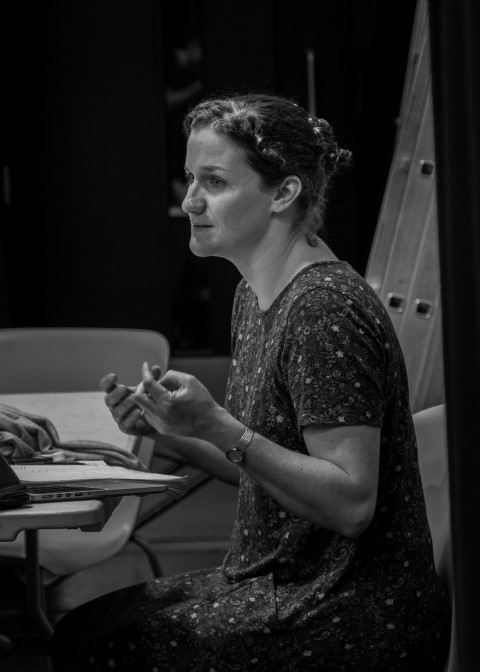Lizzie Nunnery on To Have to Shoot Irishmen

Inspired by true events,"Lizzie Nunnery’s fine new play" (★★★★ The Guardian) weaves movement and live folk song in to a stirring tale of militarism, corruption and the power of rebellion. An “Evocative slice of history” (★★★★ The Stage), it is “Exceptional" (There Ought to be Clowns) and “Emotionally charged” (★★★★ Stage Review). This “Stunning production" (British Theatre Guide) visits the Everyman as part of the Liverpool Irish Festival (25-27 Oct).
Lizzie has a long and rich history with our theatres. We love her work. Her previous productions with us include The Sum and Intemperance at the Everyman and Narvik and The Swallowing Dark at the Playhouse Studio.
Below you can read, in her words, how To Have to Shoot Irishmen came to be.
"I’m a history lover and about ten years ago I started reading a lot about the 1916 Easter Rising in Dublin and got excited when I came across this story of the Sheehy Skeffingtons.
Hanna was an early feminist and suffragist. She was imprisoned and on hunger strike twice in her life because of her activism. She was an incredible woman and I really wanted to tell her story. So often women are written out of history and that’s very true of the events of the Easter Rising.
Hanna was friends with the nationalist rebels who marched into town and declared a free Ireland. But her and her husband Frank’s position was that Ireland could be free without bloodshed. They were pacifists and feminists as well as nationalists.
The play is about Hanna’s response to her husband’s murder by a British soldier, about the way it impacts on her and transforms her. The title comes from a quote from the British soldier Captain John Bowen Colthurst. On the night before he killed Frank he was reported to have said, “Isn’t it dreadful to have to shoot Irishmen”.
I became haunted and fixated by this relatively recent history and these appalling acts of brutality. I wanted to tell Hanna and Frank’s extraordinary story of love, violence and loss. The extreme events of the Rising are a backdrop to a relationship blown apart.
All the major events are truthful and very carefully plotted in the timeline of what really happened. No one really knows what these people said to each other in those moments and days. That’s the fun for a writer, to imagine those conversations.
I think the play resonates with current conflicts and raises big questions about Britain’s attitude to other nations. That question of what happens after an initial intervention remains relevant. In Iraq, Afghanistan, Syria.
There is a false idea that you can contain violence, that you can go in and be strategic and precise. But history tells us repeatedly that this isn’t true. Once you go in, you set ripples in motion and we have no idea where those ripples of violence will lead.
That April morning in 1916 when the Irish rebels picked up their guns and walked into town with a heroic intention, they never knew where it would carry them or their country. And when the British army stormed in, crushing that relatively small rebellion in such a violent, terrible way there was no turning back.
They cracked everything open."
To Have to Shoot Irishmen is at the Everyman, Thursday 25 October to Saturday 27 October
Posted in PRODUCTIONS